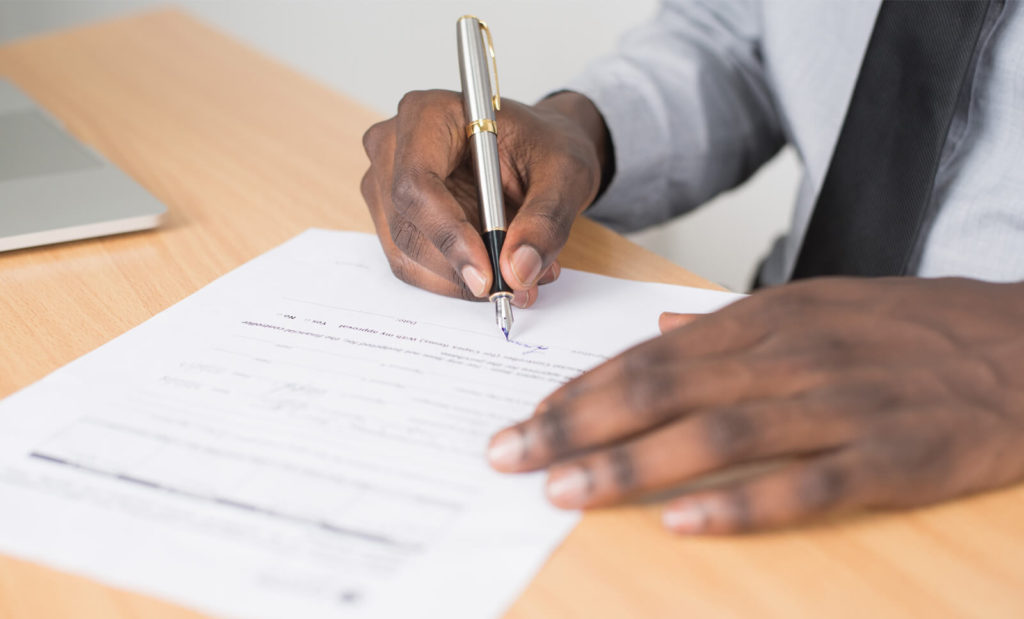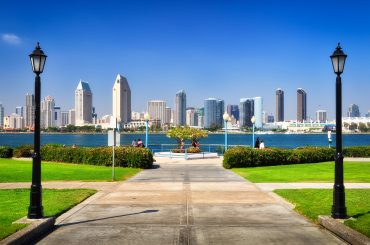If you find yourself in a position where you can work remotely, then the thought of traveling simultaneously may have crossed your mind.
But the life of an adventurer does not mean you can escape home responsibilities, and U.S. tax regulations need to be filed even when you are living and working abroad as a digital nomad. Filing your U.S. taxes can be somewhat complicated, but it can be easily handled when we allocate time to manage the documents and procedures. And luckily, there are some digital nomad tax deductions that can help you save in the end.
How to File Your Taxes as a Digital Nomad Overseas

Here are some of the most important points to consider when you’re filing your taxes as a digital nomad or expat.
Self-Employment Tax for Digital Nomads
Self-employment tax includes contributions to social security and medicare on 15.3% of your first $132,900 earned. If you are working for an employer then you do not need to pay self-employment tax. However, you must pay your taxes in quarterly increments if you are.
If you’re a self-employed digital nomad, you could qualify for the Self-Employed Contributions Act (SECA).
There are a number of countries that have signed a totalization agreement, making residents exempt from paying SECA tax. These countries include:
- Australia
- Austria
- Belgium
- Canada
- Chile
- Czech Republic
- Denmark
- Finland
- France
- Germany
- Greece
- Ireland
- Italy
- Japan
- Luxembourg
- Netherlands
- Norway
- Portugal
- Poland
- South Korea
- Spain
- Sweden
- Switzerland
Another way to avoid the self-employed tax is to establish a foreign corporation, which may require an LLC to reduce taxes. This depends on the jurisdiction that you incorporate in, and you may want to hire a professional to help you through the legal process.
U.S. State Taxes for Digital Nomads
Unfortunately, there is no single set of rules for state taxes, and it varies from state to state. If you are no longer resident in a state then you do not need to pay state taxes, but in some states, it is more difficult to change your status.
Certain factors can bind individuals to states for tax purposes, such as owning property, being registered to vote, or having a driving license issued. States like California, South Carolina, and Virginia are known for being particularly officious in this respect, so residents or former residents should be more concerted in their efforts to break ties.
Even when the taxes are relatively low, it is a good idea to plan for the future and avoid state taxes if you can. One way of doing this is to become a resident in a different state before you leave the country, while another possibility is using a virtual mailbox. With either of these two options, you can set up in states that do not tax income, such as the following:
- Alaska
- Florida
- Nevada
- South Dakota
- Texas
- Washington
- Wyoming
Foreign Earned Income Exclusion (FEIE) for Digital Nomads
The FEIE is important for digital nomads because it allows them to exclude income that is earned abroad up to $100,000. The exact amount is calculated every year and for the 2019 – 2020 tax year is set at $105,900.
In order to receive this tax benefit, there are two different tests that can be taken.
Bona Fide Residence Test
This test is for expats that can prove they are resident in a country for an entire calendar year, with no plans to move back to the US or another country. This is not a common option among digital nomads that prefer to travel from country to country, however, this could work if you travel slowly.
Physical Presence Test (PPT)
The requirements of this test are for individuals to spend 330 days of a year living and working outside of the United States. This does not need to be a calendar year, just any consecutive 12-month period. The 35 days spent in the U.S. don’t need to be consecutive and they can be different trips, provided the total number of days does not exceed 35. The days of arrival and departure also contribute to this figure.
The PTT is usually the more attractive option for digital nomads as it leaves the option to return home on separate trips throughout the year while spending most of the year in different locations around the world.
Tax Home
For every individual, the IRS determines a tax home, which is the main place of employment or business. Establishing a tax home abroad is necessary for the Bona Fide residence test, and a tax home abroad is not possible while you are living in the U.S.
Both the Bona Fide residence test and the PPT are not surefire ways of qualifying for FEIE. There is still a chance that the tax exclusion will be refused. It is important to make sure your tax home is not in the United States.
The location of your tax home affects your tax deductions for business travel. People that regularly live and work in different locations, such as digital nomads, the IRS considers being ‘itinerant’. As their tax home is wherever they happen to be at the time, they are unable to claim any travel expenses.
Forming a Foreign Corporation as a Digital Nomad

U.S. citizens that own foreign corporations are required every year to submit Form 5471 along with a company balance sheet and online statement. For most digital nomads, forming a foreign corporation will probably not be worth the time and effort. It may be a good idea to form a Limited Liability Company (LLC) to improve the business image and separate business and personal finances.
For entrepreneurs that are earning high profits, foreign corporations in either onshore or offshore jurisdictions have the chance to save on taxes. Those with capital-intensive businesses may also wish to do this if they are not eligible for tax deductions under FEIE.
The Forms You Need for Filing Your Taxes
From the usual date that taxes need to be filed on April 15, there is an automatic two-month extension until June 15 for those residing outside of the country. There is also a six-month extension available, until October 15. This can be applied for by June 15 by filing form 4868.
These are the forms that most commonly need to be filed by digital nomads:
- Form 1040, U.S. Individual Income Tax Return: This is for personal tax returns and it needs to be filed in all situations.
- FinCEN Form 114, Report of Foreign Bank and Financial Accounts (FBAR): This needs to be filed by U.S. citizens with funds in foreign accounts totaling more than $10,000.
- Form 2555, Foreign Earned Income: This form is required to claim for the FEIE and foreign housing exclusion or deduction.
- Form 1116, Foreign Tax Credit: This is to claim a foreign tax credit if you have needed to pay foreign taxes while living in a foreign country.
- Form 5471, Information Return of U.S. Persons With Respect To Certain Foreign Corporations: When U.S. citizens are officers, directors of shareholders with at least 10% ownership in foreign corporations, they need to file this form.
- Form 8938, Statement of Specified Foreign Financial Assets: For U.S. citizens with foreign assets of more than $200,000 at the end of the year. If they are residing in the U.S., the limit is lower.
Do You Need to Hire an Accountant or Tax Preparer?

For filing your taxes, it may be a good idea to enlist the help of an accountant or a trained tax preparer. It is also recommended that you keep track of all your financial statements and important documents that prove you qualify for tax deductions. These could include:
- Records of income taxes paid abroad
- Property taxes paid
- Medical expenses
- Business expenses
- Mortgage interest payments
- Housing expenses abroad
How to Manage Your Expenses and Receipts

Filing taxes is no one’s favorite task, but the consequences of failing to keep your tax records straight can be hugely damaging. As digital nomads, there are always hundreds of incredible ways to spend our time, but keeping the house in order cannot be overlooked.
- All the expenses that you incur that contribute to earning your living are tax-deductible. For digital nomads, this could include laptops and accessories, coworking space fees, or banking and online payment system fees.
- It is important to keep track of these expenses, by keeping and recording all your receipts. All this can be organized and managed in an expense spreadsheet to make everything clear and with all of the relevant details. The original receipts will need to be kept in case you are audited.
- It is a good idea to make use of an app like Quickbooks or Xera, that can automate your accounts and tax records, and make them easier to manage. These come with mobile scanning apps for receipts, which can even identify and store the relevant details on the receipts.
Once we have established a routine for accounting and taxation then it is not so difficult to keep to. With everything clear and legitimate, then we can enjoy the freedoms that the digital nomad life grants us.





